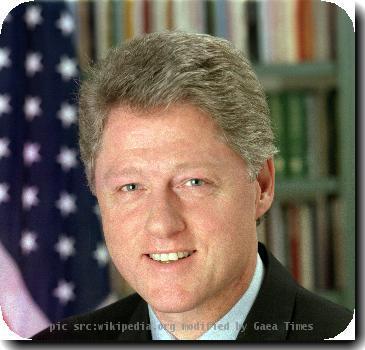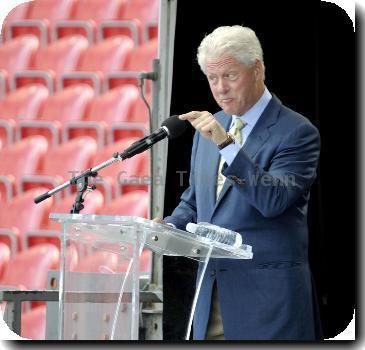Romania opposition party contests election results, accusing Basescu supporters of fraud
By Alison Mutler, APMonday, December 7, 2009
Romania opposition party contests election results
BUCHAREST, Romania — Romania’s main opposition party said Monday it is contesting the results of a presidential runoff, claiming that incumbent President Traian Basescu’s narrow win was achieved through fraud.
The Social Democrats say left-leaning former Foreign Minister Mircea Geoana actually won Sunday’s race, an election seen as crucial to addressing a government crisis and the country’s painful recession. Basescu’s backers said this morning he is the rightful president but did not respond immediately to the allegations.
“Romanians voted for Mircea Geoana, but Basescu’s state apparatus is trying to make him the presidential winner through fraud,” senior Social Democratic official Liviu Dragnea said.
With 99.95 percent of the vote counted, election authorities said centrist Basescu polled 50.33 percent of the vote, while Geoana received 49.66 percent, after a campaign characterized by allegations of corruption on both sides.
Dragnea said there were too many voided ballots — a total of 138,000 — more than enough to make up the difference between the two candidates, at about 70,000 votes. He claimed that some polling stations altered final documentation, possibly forging ballots, sent to central election authorities.
He also cited “massive electoral tourism,” referring to the 617,000 voters who cast ballots at special voting centers, many of whom he claimed had already voted elsewhere.
“We contest the election. It is a democratic duty towards the 5 million Romanians,” who are about to be cheated out of their votes, he said, referring to Geoana’s voters.
There has been no word from Basescu since exit polls released last night put Geoana slightly ahead — leaving the election results uncertain overnight. Basescu said at the time that the exit polls were deceptive.
Adriean Videanu, a senior member of the Democratic Liberals who supported Basescu, on Monday called Basescu “the new president of Romania. He won with his ally, the Romanian citizen. They defeated the greatest ever alliance against them” since communism was overthrown.
Former Prime Minister Adrian Nastase, who ran for president against Basescu in 2004, also said he believed there may have been cheating. Former President Ion Iliescu called the results “suspect” and said there were “many reports” of irregularities.
The interior ministry which is controlled by the Liberal Democrats, but has been without a minister for a week, said 200 irregularities were reported and two people were detained for attempting to offer incentives in exchange for a vote.
Representatives of four parties supporting Geoana outside Romania refused to sign off on the vote count, alleging multiple voting, and claiming bribes were offered to people for their votes in Spain, Italy and Moldova.
Electoral judge Mircea Moldovan said Basescu won over 78 percent to Geoana’s 21 percent from Romanians voting abroad.
The country faces skyrocketing unemployment and a limping government since the ruling coalition fell apart two months ago amid party squabbling.
Romania is seeking to unlock a euro1.5 billion ($2 billion) International Monetary Fund bailout loan to pull it out of its deep recession but is unlikely to get one this year due to its political instability.
Basescu, 58, had seen his popularity drop this year due to the economic downturn and political feuding, but still enjoys support, especially in rural areas and among the working class. He is a formidable fighter, feuding bitterly with all the political parties in recent years except for the Liberal Democrats he used to lead.
He argues that he will modernize and reform Romania, saying much of the economy is under the control of corrupt oligarchs and media moguls with whom he links Geoana, a charge that has resonated with voters amid Romania’s economic woes.
Geoana, 51, who served as Romania’s ambassador to the U.S. and then as foreign minister, heads the Social Democratic Party, the successor to the Communist Party that ruled for more than 40 years until the 1989 anti-communist revolt.
He styles himself as a modern Social Democrat, with former U.S. President Bill Clinton and former British Prime Minister Tony Blair his political role models. He lacks Basescu’s popular appeal but is seen as a clever negotiator.
____
Associated Press Writer Alina Wolfe Murray in Bucharest contributed to this report.
Tags: Bill Clinton, Bucharest, Eastern Europe, Europe, Political Organizations, Political Parties, Recessions And Depressions, Romania

